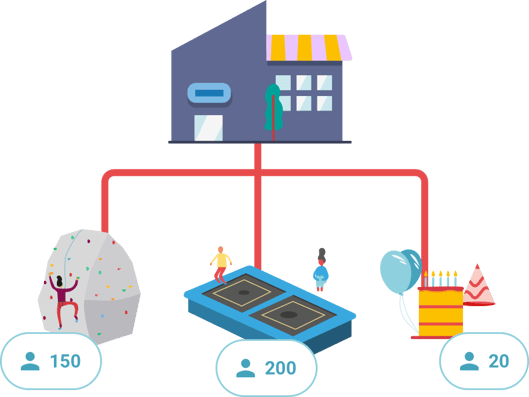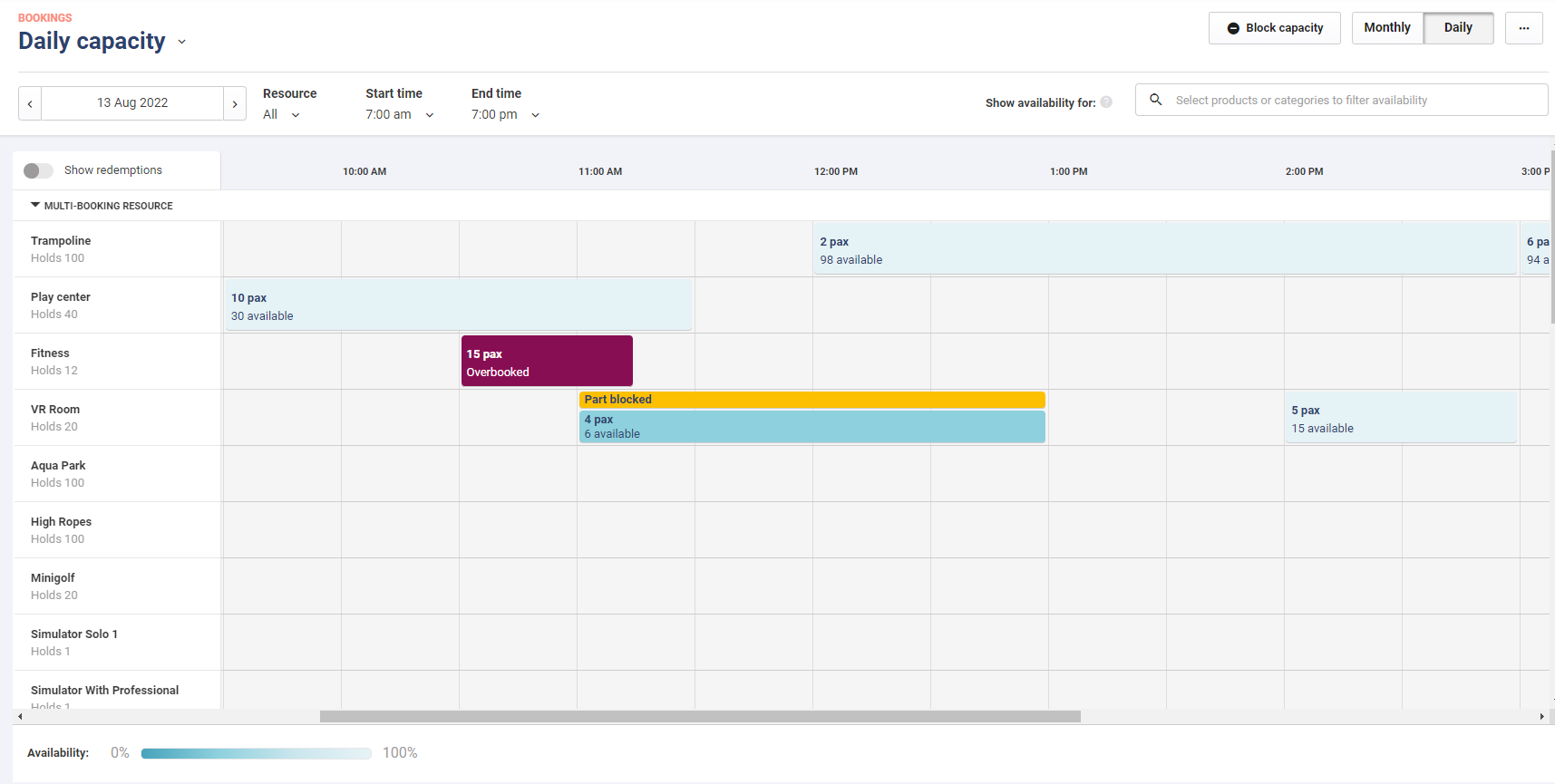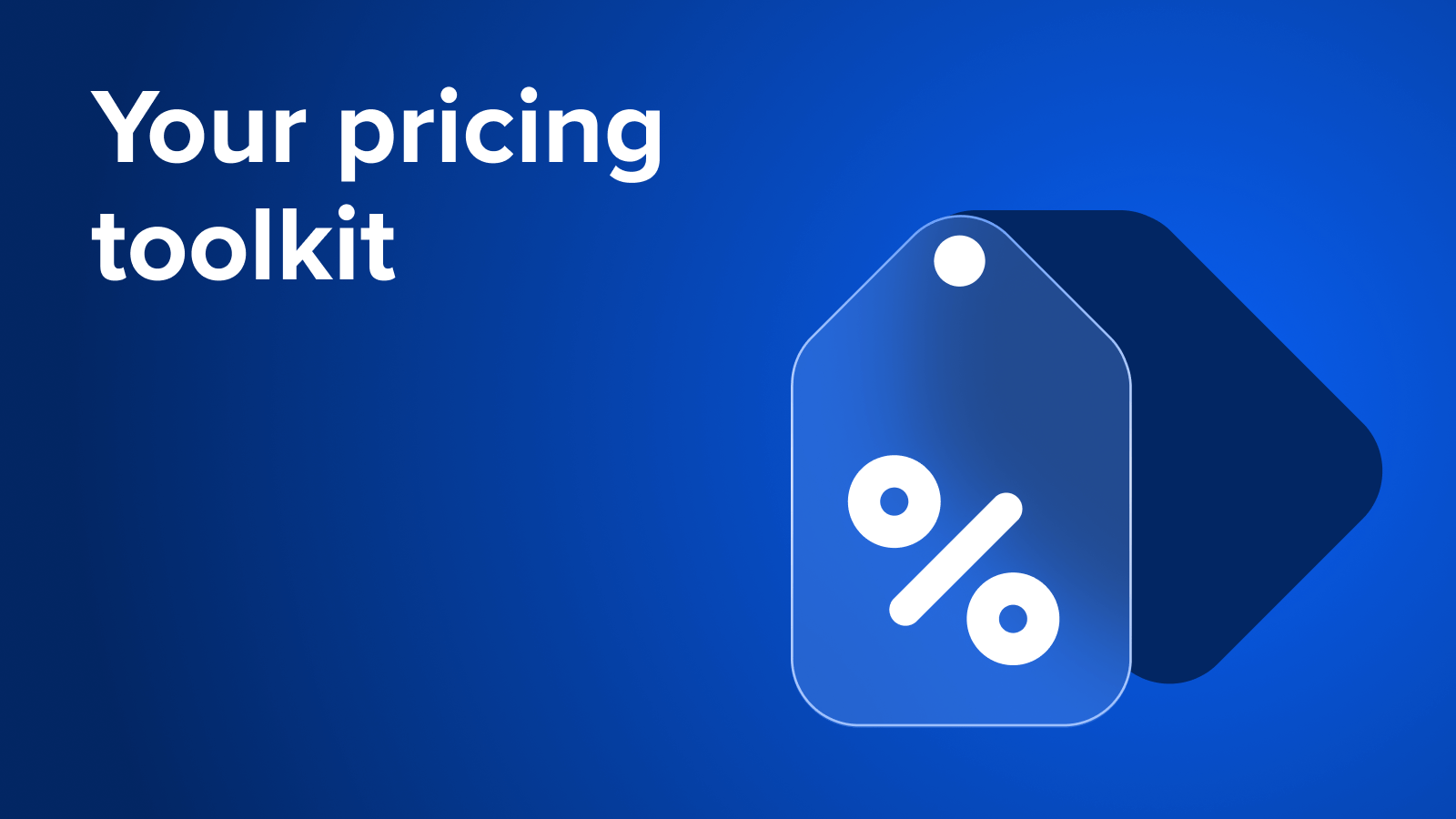Capacity Management in the Attractions Industry
.png?width=820&name=Capacity%20Management%20in%20the%20Attractions%20Industry_Social(2_1).png)
What is management capacity, or capacity management? Capacity management is a project management and resource allocation technique that helps employees use their time better to fulfill strategic business goals. In a leisure venue, capacity management also means controlling the number of guests you have at any time. In this article, we will speak predominantly on this type of capacity management.
The optimal capacity amount will vary depending on the kind and size of your venue and the applicable regulations. Once you know this number, it is crucial to adhere to it as otherwise, it will lead to overcrowding issues. Additionally, knowing the number your venue can comfortably and safely handle allows you to market your space and capacity numbers confidently.
For guests, capacity management is vital because it ensures the safety and well-being of guests and enhances the overall guest experience. Effective capacity management optimizes revenue generation by striking the right balance between attendance and profitability. It also aids in resource allocation, allowing your venue to allocate staff and services appropriately, reducing waste and inefficiencies. Managing capacity numbers is essential for any leisure venue's sustainability, reputation, and success.
In this blog, we will go through common capacity management issues, how to calculate and process capacity in operations management, and how you can use technology to overcome them.
What are the leading capacity management challenges operators face?
Venue operators can face several capacity management challenges depending on venue type. However, some of the leading capacity management challenges that venue operators commonly encounter include:
1. Overcrowding
The issue of overcrowding within a venue presents a significant challenge, as it not only compromises the safety of those in attendance but has a direct negative impact on the overall guest experience. When a venue becomes excessively congested, it’s uncomfortable for guests and staff; it leads to longer wait times, increases the likelihood of accidents, and can become a hazardous environment.
Venue operators play a pivotal role in addressing this challenge by assuming a vital responsibility for the safety and well-being of their guests. Doing this involves more than just adhering to mandated safety regulations; it requires implementing comprehensive venue management systems that efficiently control and monitor capacity. These systems are indispensable in preventing overcrowding and creating a safer and more pleasant environment for visitors.
Moreover, operators must also invest in crowd control measures to ensure the smooth flow of guests, particularly during peak hours or special events. Strategies such as queuing systems, designated pathways, and strategically placing staff to guide and assist patrons to help maintain a manageable and comfortable guest experience even in high-traffic situations. Additionally, having well-defined emergency response plans is essential. These plans encompass procedures for evacuations and handling medical incidents promptly and efficiently, ensuring the safety and well-being of everyone in attendance.
Read this next: How to manage risk at your attractions venue
2. Demand fluctuations
The demand for venue space is a dynamic factor influenced by various elements, including seasonality, event popularity, and external conditions, such as weather and economic factors. These fluctuating variables necessitate a keen awareness of venue operators who navigate these shifts effectively to optimize guest experiences and revenue.
Seasonal variations in guest numbers are expected, with certain times of the year witnessing a surge in demand while others experience a lull. The ebb and flow of events, from holidays and festivals to peak vacation periods, play a significant role in this seasonality. Effective operators understand these patterns, anticipate them, and take steps to forecast demand as accurately as possible. To do this often involves flexible capacity planning to meet peak demands while maintaining the venue's operational efficiency during quieter times.
Additionally, the popularity of specific events can lead to a rapid increase in demand for venue space. Operators who stay attuned to current trends and event preferences can make timely adjustments to capitalize on these opportunities, ensuring guest satisfaction and bolstering revenue. Such adaptability is crucial because if operators mismanage capacity during peak periods, they risk squandering opportunities for revenue generation and potentially compromising guest experiences.
Moreover, external factors like weather conditions and economic fluctuations also play a role in determining demand. For example, a sudden downpour during an outdoor event may cause changes in attendance, while economic downturns might impact discretionary spending, affecting overall guest numbers. Operators who consider these external factors, incorporate them into their capacity management strategies, and implement contingency plans can navigate these challenges more effectively, ultimately maintaining the delicate balance between guest satisfaction and revenue generation.
3. Inefficient venue management systems
Slow or inefficient systems can cause many capacity management problems. If your system doesn’t quickly update capacity limits or the guest numbers for a session/room on your website, your guests may book it without knowing it is already at capacity. Further, if your system doesn’t show you the capacity numbers for specific rooms in real time, you will have the wrong information and might unknowingly breach capacity limits.
Effective capacity management often relies on technology solutions such as ticketing and booking systems, access control systems, and data analytics. The right systems make the capacity management process easier for you, as you can keep a close eye on capacity without putting in the extra effort.
Some cloud-based systems, like ROLLER, allow operators to enter the maximum number of guests for a particular session/ room or block capacity for specific sessions. Once the operator has made these updates, it updates immediately on the venue's website. It shows the real-time capacity limits of sessions, significantly reducing the chance of errors and overbooking. Having clearer visibility over guest numbers allows the operator to better allocate resources like staff and security personnel.
Read this next: Understanding & Choosing Queue Management Systems
Key features of ROLLER for capacity management
So, how to manage capacity? And how to improve capacity management? At ROLLER, we know that managing capacity can be challenging. You have a million things going on in your venue; tracking how many guests are in it can be difficult. That’s why we created our capacity management tools to help you save time, better manage capacity, and increase guest satisfaction.
Real-time tracking & monitoring
Being a cloud-based system, any updates our customers make to their dashboards update in real-time for their staff and guests.
Concerning capacity management, our customers can set and manage capacity via ‘resources.’ Resources can be a physical area, an activity, etc. Customers should have a ‘resource’ for any area or activity they wish to manage capacity, such as each room or area guests can book into.
Consider this scenario with a venue that includes:
- A rock climbing area accommodating 150 guests.
- A trampoline area with a capacity for 200 guests.
- A party room suitable for 20 guests.
In this instance, operators can regulate the venue's capacity by establishing three distinct resources, each corresponding to an area or room.
When you create these kinds of resources, they automatically manage your capacity. When guests go to book a particular session, they will only be able to if available capacity exists.
Similarly, this feature allows you to block sessions that you do not want any more guests booking. And the best thing about this feature? Everything happens in real time! As soon as you create or update your resource, your staff and guests can see it — dramatically reducing the chance of errors and double-booking.
Advanced booking systems
Like the above, our robust ticketing and booking systems work in real-time and instantly alert you when a guest makes a booking. In our calendar view, you can also see how many tickets are redeemed and how full your upcoming sessions are.
We also have integrations with third-party resellers like Groupon, which help our customers optimize their capacity and get even more bookings. Third-party resellers give our customers a much broader audience reach than they would have alone (and without all the extra effort!), and it helps drive guests to their venues to increase capacity.
Data analytics for predicting guest trends and preferences
Our Reporting & Analytics features elevate ROLLER's data insights and reporting capabilities, offering robust features for monitoring and presenting your venue's performance across crucial business metrics in a user-friendly and actionable format. We supply an extensive collection of dashboards, reports, and essential business metrics for long-term tracking, including per capita spending, repeat visit rates, guest lifetime value, membership performance, guest demographics, and more.
The Analytics tool will better equip you to plan and manage capacity by teaching you much more about what your guests want and prefer than ever before.
The upside of adopting software solutions for capacity management
Capacity management software offers many advantages to venues, spanning several critical aspects of their operations. One of the foremost benefits is the efficient allocation of resources, ensuring that spaces and facilities are optimally utilized. This benefit maximizes the return on investment, prevents wastage, and enhances overall operational efficiency.
Effective capacity management software significantly contributes to improved planning. Venues can systematically analyze historical data, anticipate future demand, and strategically allocate resources to cater to peak periods or special events. A proactive approach like this bolsters guest satisfaction and enables venues to remain agile in adapting to varying demand patterns.
Furthermore, capacity management software aids in cultivating an enhanced guest experience. By ensuring that guests have adequate space and access to the services and amenities they desire, venues can foster a positive and memorable visit for patrons. In turn, this leads to increased guest loyalty and word-of-mouth referrals.
Cost reduction is another notable advantage, as venues can optimize resource allocation, minimize unnecessary expenses, and enhance profitability. The software's capacity forecasting capabilities allow for accurate demand predictions, enabling venues to plan accordingly, avoid overstaffing, and reduce overhead costs.
Using software helps facilitate data-driven decision-making, offering valuable insights and analytics that can guide strategic planning and investment decisions, enabling venues to adapt and thrive in a constantly evolving industry.
Finally, capacity management software helps mitigate risks and assists with scalability. It helps reduce risks by offering real-time monitoring and alert systems, which can be instrumental in responding to unforeseen situations promptly and effectively. Scalability benefits as venues can readily adapt their capacity management to accommodate fluctuations in demand or expansions. And this flexibility ensures that venues can meet the evolving needs of their clientele and stay competitive in the market.
Investing in high-quality, modern venue management solutions encompassing advanced capacity management features is a wise move. These solutions not only streamline complex aspects of capacity management but also deliver many benefits that can enhance operations, drive guest satisfaction, and give venues a competitive edge in the ever-evolving landscape of the entertainment and hospitality industries.
Embrace the future of capacity management
Capacity management isn’t always easy — but the right tools can do the heavy lifting for you.
Common capacity management challenges are overcrowding, demand fluctuations, and inefficient venue management systems. However, investing in the correct venue management tools can make all the difference in better utilizing your space and resources and increasing revenue and guest satisfaction.
Contact us if we can help you with your venue and capacity management needs.
Related articles


What Every Venue Needs to Know About Birthday Parties (from a Parent and a Pro)

2025 Pulse Report Webinar: Operators Unpack the Guest Insights
Enhance your guest experience
Get free education, tips and inspiration to help you run a successful venue.